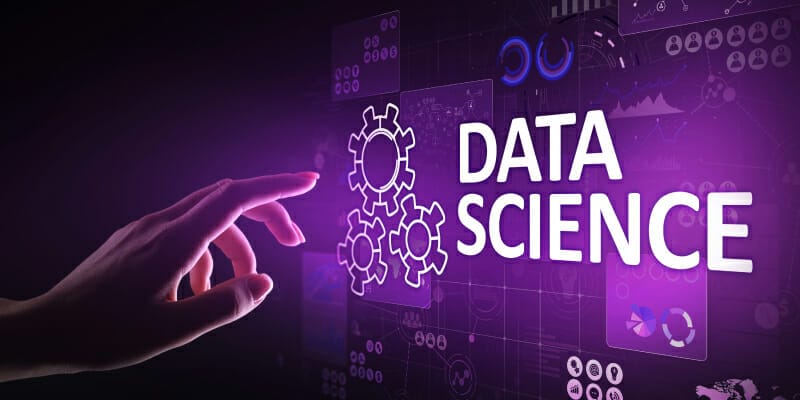Medavakkam:
+91 9176-333-334 Porur:
+91 9159-333-334 Karapakkam:
+91 9655-333-334 Medavakkam:
+91 9176-333-334 Porur:
+91 9159-333-334 Karapakkam:
+91 9655-333-334 Drop A Message

“Data isn’t units of information. Data is a story about human behavior- about real people’s wants, needs, goals, and fears.” Daniel Burstein
The above quote is what Data Science is all about. Essentially, data science is about transforming mountains of information into actionable insights and knowledge. The real art of data science lies in using this knowledge for:
This area of study involves the use of various algorithms and processes to analyze diversely sourced and differently-formatted data.
Data Science is a vast field that’s expanding rapidly as the value of data grows exponentially. In fact, advanced technologies like Artificial Intelligence and Machine Learning, and other disciplines are anchored to data science and its outcomes. This field is currently reshaping entire industries and fueling inventive ideas, impacting virtually every business domain, from medicine to manufacturing to education, publishing, and finance.
In today’s business world, data is everything. It has the immense potential to drive every aspect of a business- From conceptualising policies, recruiting employees, drafting strategies, and implementing best practices to regulatory compliance and everything in between. Furthermore, Precedence Research’s report about Data Science reports that the field will grow at a rate of 16.43%. By 2030, the data science market is expected to be valued at a whopping USD 378.7 billion.
With data becoming the end-all-be-all in business, organisations of all sizes recognise the importance of converting raw data into actionable insights. These insights drastically change the way organisations think and decide about their future processes.
The more organisations rely on data, the more it drives the demand for highly skilled and experienced data professionals and data scientists with exceptional knowledge of using analytical tools and techniques for data analysis.
Global giants like Amazon, Microsoft, Apple, and Google are casting their nets far and wide to recruit the best data science professionals for their valuable skills.
Data scientists are analytical professionals with the technical acumen to tackle complex problems and the curiosity to explore which questions require answers. Generally, data scientists are highly proficient in statistics, computer science and mathematics. They also can forecast business trends and patterns by analysing the processed data.
In fact, the term data scientist is derived from the fact that these professionals leverage statistical and mathematical aspects to derive information from scientific applications.
Data scientists are responsible for:
Data scientists are also entrusted with the responsibility of looking after the entire data science lifecycle- a highly intricate task that requires adequate proficiency in multiple data science disciplines, tools, and techniques.
Also Read: Microsoft Azure Syllabus
The Data Lifecycle consists of five crucial and distinctive stages, each serving a varied purpose, ultimately converting data into readable and actionable insights.
Stage 1: Data Capturing
Data scientists collate raw and unstructured data from various sources in this initial stage. Data capturing typically includes the following processes:
Stage 2: Data Maintenance
In this stage, raw data is transformed into a usable format to be further broken down and processed. This stage comprises:
Stage 3: Data Processing
Data scientists analyse prepared data to identify patterns, ranges, and biases, ultimately assessing its suitability for predictive analysis. Data processing includes:
Stage 4: Data Analysis
In this stage, the processed data is subjected to multiple types of analysis and processes like:
Stage 5: Data Communication
During this crucial stage, analysts conduct in-depth analyses that are transformed into visually appealing and comprehensive forms, including visually engaging charts, informative graphs, and insightful reports.
Tools & Technology
To complete these complex lifecycles and present data in actionable formats, data scientists must be proficient in programming languages like C, C++, R, and SQL. They also rely heavily on a variety of tools to facilitate each stage of the data lifecycle, such as:
Data science is omnipresent. There is hardly any business discipline that doesn’t rely on data science and its outcomes. Here’s a list of industries where data science is making its mark.
1. Search engines like Google use data science technology to facilitate millions of searches and deliver results within a fraction of seconds.
2. Healthcare companies are leveraging the power of data science to develop advanced medical devices that can identify and treat diseases with remarkable precision.
3. Law enforcement tasks like crime predictions and tax fraud enforcement also rely on data science. Detectives rely on data science to use facial recognition tools to identify suspects and nab elusive wrongdoers.
4. Transportation and logistics rely on data science to enhance traffic patterns and shipping routes and enable efficient food service.
5. The gaming industry owes its success to data science, which has enabled the creation of engaging and exclusive games that have elevated the gaming experience for players all over the world.
6. Recommendation systems require data science to create suggestions on social media platforms like Facebook, Instagram, and YouTube. For instance, the friends and video suggestions you see on these platforms are made possible with data science.
7. Banks and financial institutions rely on data science and other algorithms to identify defective transactions and fraudulent financial activities.
The benefits of data science are as vast as the field itself. Currently, the technology has made itself indispensable to:
Data is a valuable asset, as knowledge empowers and can determine the fate of a company, whether it flourishes or falters. As the importance of data science grows rapidly, it is creating excellent career opportunities in world-class companies. NOW is the time to maximise your data science skills and knowledge.
Enrol in Aimore Technologies for Data science training courses and pave the way to establishing a fantastic career in this field.
Is data science your forte? Waste no time. Contact us now for all the details.